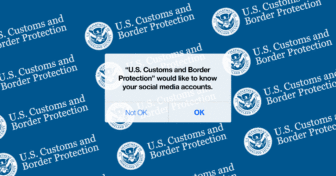Tag: CVE

Access Now: Christchurch Call emphasizes human rights, but needs meaningful participation and transparency for rights-respecting outcome
Any attempt to set policies or binding regulations that impact online speech will be successful only if it is truly inclusive and genuinely garners insight and expertise from civil society.

Access Now on the Christchurch Call: rights, wrongs, and what’s next
Governments and tech companies have published the Christchurch Call with the aim of eliminating violent and extremist content online. Civil society needs to be a central part of crafting a rights-respecting implementation.

Joint letter opposing the proposed Terrorist Content Regulation
The ‘Regulation on preventing the dissemination of terrorist content online’ does not accord with the Charter of Fundamental Rights. Evidence-based measures can better achieve the Regulation’s stated goals.

Internet rights in focus: 38th session of the Human Rights Council
Our joint review with APC of the internet and human rights issues at stake in the 38th session of the United Nations Human Rights Council, June 18-July 6

Where you can find Access Now at CPDP 2018
We look forward to connecting with you!

Access Now responds to Special Rapporteur Kaye on “Content Regulation in the Digital Age”
Governments are coercing private internet intermediaries to police and regulate online content. Here’s how companies can meet their obligation to respect human rights.

Access Now at the 2017 Internet Governance Forum
Here’s where we will be at IGF 2017 in Geneva, Switzerland on December 18-21.

Saving our agnostic internet, part I: censorship and free expression
Governments globally are pushing companies to “do more” to address harmful speech online. Any approach must bolster, not undermine, human rights.

Access Now calls on Trump administration not to focus anti-extremism programs on Islam
Discrimination against a single religious group violates the U.S. Constitution and international human rights obligations.

Trump administration doubles down on alarming social media tracking practices
The U.S. is already asking foreign travelers for their social media information at the border. Now that request may become a requirement.